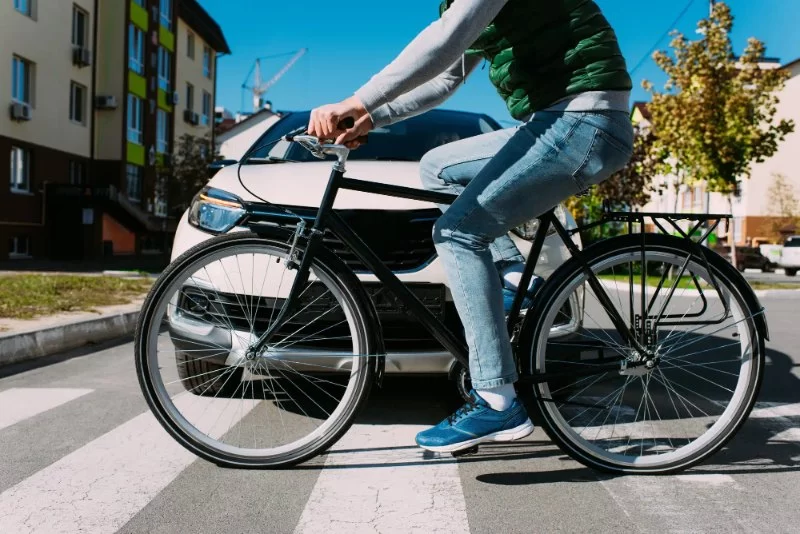- 1 - Understanding Bicycle Accident Claims
- 2 - Legal Rights of Injured Cyclists
- 3 - Compensation and Claim Process
- 4 - Real-Life Examples and Cases
- 5 - Challenges Cyclists Face in Legal Claims
- 6 - The Role of Lawyers in Protecting Cyclists’ Rights
- 7 - Building a Strong Claim After a Bicycle Accident
1. Understanding Bicycle Accident Claims
When it comes to bicycle accident claims: legal rights of injured cyclists, understanding the basics is critical. Bicycle accidents often involve collisions with cars, poor road conditions, or negligence from other parties. Injured cyclists may face medical bills, lost income, and long recovery periods. Filing a claim allows them to pursue compensation and accountability. In the U.S., bicycle accident laws vary by state, but the underlying principle is clear: cyclists have the same right to safe roads as motorists.
2. Legal Rights of Injured Cyclists
Cyclists injured in an accident have the right to pursue damages for medical expenses, pain and suffering, and lost wages. They also have the right to fair treatment under traffic laws, which recognize bicycles as vehicles with legal standing on the road. For example, if a motorist fails to yield or opens a car door into a cyclist’s path, the cyclist may file a claim for negligence. These rights are designed to protect vulnerable road users, who face greater risks than drivers in enclosed vehicles.
3. Compensation and Claim Process
The process of filing a bicycle accident claim usually involves documenting the accident, collecting witness statements, and presenting medical records. Insurance companies may cover some costs, but disputes often arise over liability or the extent of damages. In many cases, professional legal representation makes the difference between a denied claim and a successful settlement. Compensation can cover hospital bills, rehabilitation, psychological trauma, and even long-term disability if the injury is severe.
4. Real-Life Examples and Cases
Consider the story of a cyclist in Chicago who suffered a fractured leg after a driver ran a red light. With proper legal guidance, the cyclist secured a settlement that covered both medical expenses and lost income during recovery. Another case in California involved a bike commuter injured by a poorly maintained road. The city was held accountable for negligence, leading to compensation that supported the cyclist’s rehabilitation. These examples show how persistence and legal support can transform difficult situations into fair outcomes.
5. Challenges Cyclists Face in Legal Claims
One of the main challenges cyclists face is bias. Insurance adjusters or even jurors may incorrectly assume cyclists were reckless. Proving fault requires strong evidence such as accident reconstruction, police reports, and medical documentation. Another challenge is time—most states enforce strict statutes of limitations on filing claims. Missing deadlines can result in losing the right to compensation. This is why immediate legal advice is critical for injured cyclists navigating the claims process.
6. The Role of Lawyers in Protecting Cyclists’ Rights
Lawyers play a central role in defending cyclists’ rights, ensuring claims are supported by solid evidence and presented effectively. They negotiate with insurance companies, gather expert testimony, and represent clients in court if necessary. Many injured cyclists hesitate to pursue claims due to fear of high costs or long processes, but legal professionals often work on contingency, meaning they only get paid if the claim succeeds. For reliable guidance, services like Fred Miller Lawyer offer personalized support tailored to each case.
7. Building a Strong Claim After a Bicycle Accident
To build a strong claim, cyclists should seek immediate medical attention, document injuries, take photos of the accident scene, and collect contact details from witnesses. Reporting the accident to local authorities ensures there is an official record. Keeping detailed notes on recovery progress also strengthens the case. Ultimately, combining thorough documentation with experienced legal support gives cyclists the best chance of achieving fair compensation and justice after an accident.


 the attorney group
the attorney group wall and wall attorneys
wall and wall attorneys divorce lawyers in centennial
divorce lawyers in centennial lenden webb attorney
lenden webb attorney shaftel law
shaftel law shane perry attorney
shane perry attorney